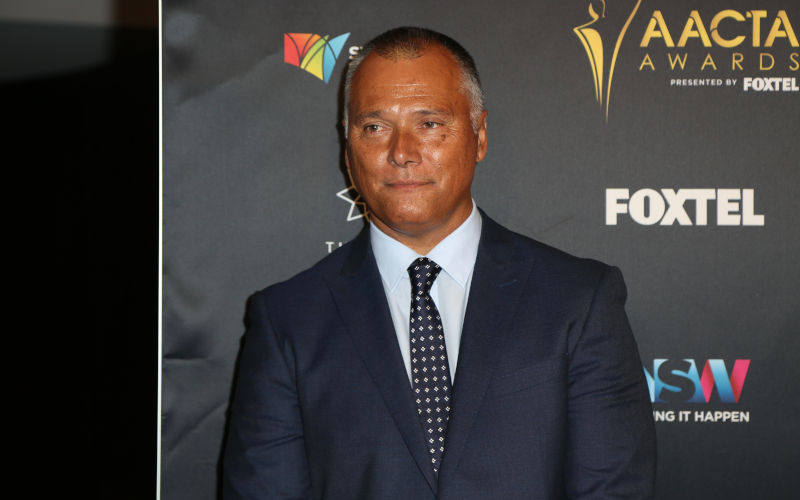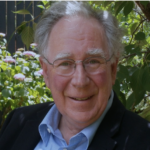Vale, Stan Grant
May 27, 2023
Stan Grant is always intelligent, insightful and provocative. He demonstrated this in his extraordinary farewell piece last Monday night on the ABC’s Q+A.
I have enormous respect for Stan Grant. Always intelligent, thoughtful and provocative, he has been an important contributor to intellectual life in Australia. His strength has been to move discussions on from the sterile economism and superficial secularism that characterises so much of our national dialogue, to the deeper philosophical and spiritual issues underpinning Australian culture.
That’s exactly what he did last Monday night on Q+A. In a three-and-a-half-minute piece to camera at the end of the show he took us to the heart of First Nations culture. Rather than bleating about racist slurs, he said that he was withdrawing from the media because “endurance is not always strength. Strength is to know when to say ‘stop’” and that, he said, is why he is pulling back from public life.
A Wiradjuri man from south-central NSW, Stan Grant said that his culture taught him to respond to the hatred directed to him and his family by drawing on “Yindyamarra”. He conceded that “it’s a word beyond translation to English because … it’s an idea … a way of living, a way of being.” It means strength in quietness, kindness and respect. “It speaks to the differences between us … [It doesn’t] shy away from the things that divide us, but looks for ways we can meet each other and see each other in each other, despite those divisions.”
Yindyamarra, he says, is at the core of his being. He added that it’s “the respect that comes from the earth we are born into, from God, Baiami. If I break that, I lose who I am.” He made the reference to “God, Baiami” quietly and reverently. It is precisely in these two sentences that Stan shows what grounds him as a person. It also takes our cultural discussion beyond superficial political posturing to the much deeper place of First Nations belief.
His references to “the earth we are born into” and “God, Baiami” remind us that as humans we are beings who are utterly grounded in the earth, in the country where we become truly ourselves. As immigrants, or the descendants of immigrants, this is something that non-Indigenous Australians have to learn and it is clear that not all of us have learned it.
But we also long for transcendence, creatures who are only really ourselves when we reach beyond the self. It is figures like Baiami, the Dema, or ancestor spirit, or “all father” who represent that transcendence. That, I think, is what Stan Grant is saying.
The references to Baiami and God are fascinating. The most influential anthropologists who have written about Aboriginal religion, at least for me, are the German priest, Ernest Worms, Bill Stanner and philosopher, Max Charlesworth. All three warn, particularly Worms, that we should not rush in and identify figures like Baiami with the biblical or Christian God.
While Baiami is often associated with the sky, Worms specifically warns that we shouldn’t immediately slip into Western theological equivalents for complex Aboriginal words and concepts because “this almost apologetic monotheistic theme does not correspond to the modes of thought and expression of … [First Nations] Australians” (Australian Aboriginal Religions, 175). A related south-eastern Australian word to Baiami is Djaramaljan, a word which in western and central Victoria is represented as an eaglehawk.
Worms is very careful not to link any of these concepts to a transcendent God, or even to our concept of the spirit /soul. He clearly respects the original First Nations context and explicitly avoids Western or Christian “translations”. Given his respect for Aboriginal otherness, Worms avoids the re-colonising tendency that is unconsciously at work among some of my fellow Catholics and Christians, who often talk about what they call “Aboriginal spirituality”, while re-interpreting First Nations concepts in Western religious modalities.
The one part of the speech where Stan clearly relates First Nations beliefs with Christianity is when he speaks about meeting hatred with love. “My people can teach the world to love … Don’t mistake our love for weakness, it is our strength.” It could almost be Jesus speaking.
He concluded with another Wiradjuri concept, “Yindyamarra Winhanganha”, meaning “the wisdom of respectfully knowing how to live well in a world worth living in” and he asked if the Australian media was truly honouring “A world worth living in.” His response: “Too often we [the media] are the poison in the bloodstream of our society.”
Yes, much in the media is toxic, but the media essentially reflects what is happening more broadly in society. Given our widespread abandonment of Christianity, understandably given the behaviour of some churchmen, we still have to ask: is post-modern individualism a sufficient basis for coherent societal ethics?
In my view, it’s not. This is where we could learn much from our First Nations fellow citizens, particularly from someone like Stan Grant.




